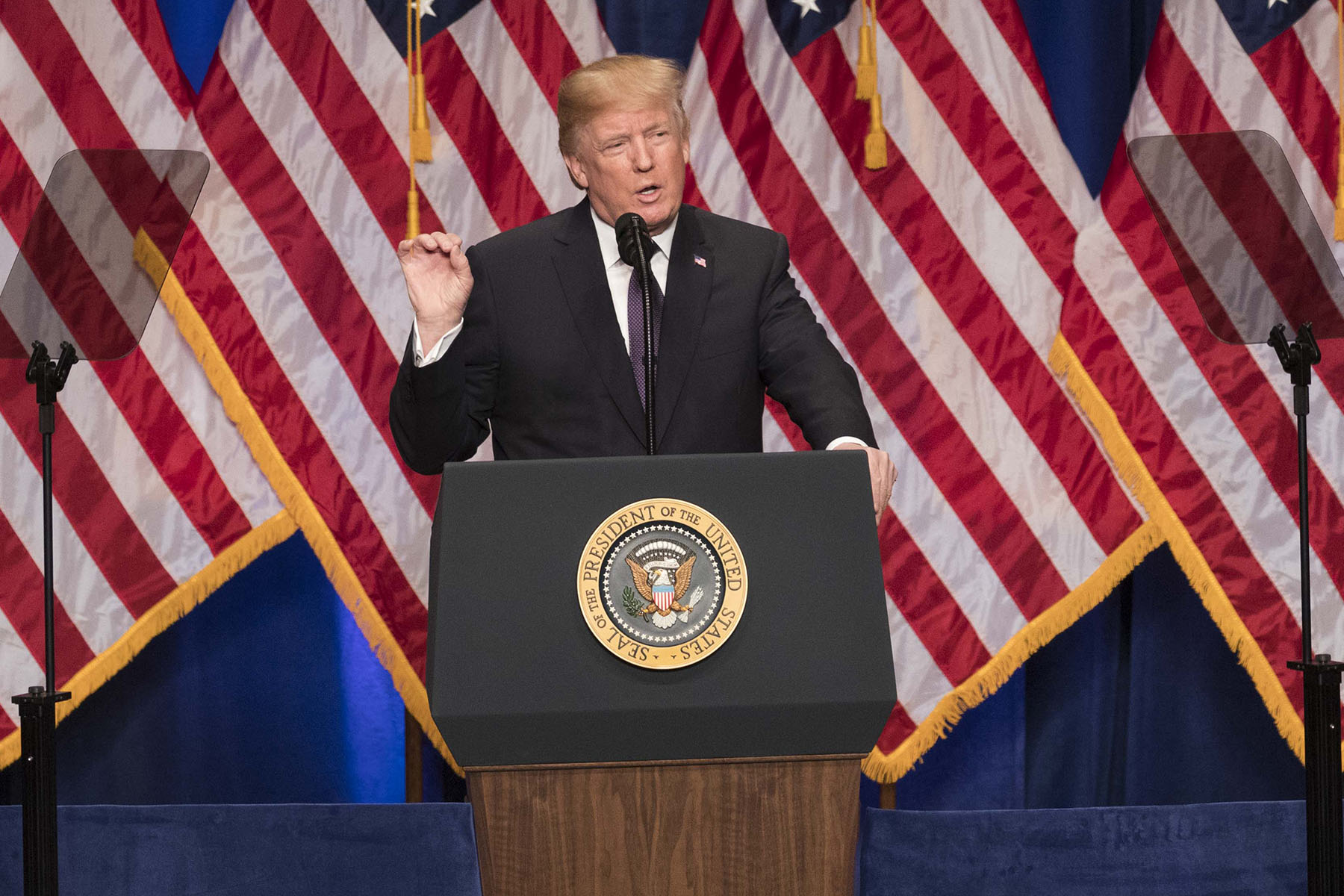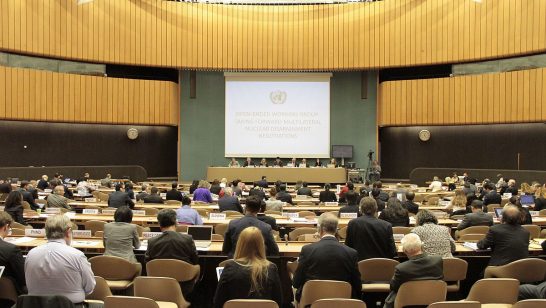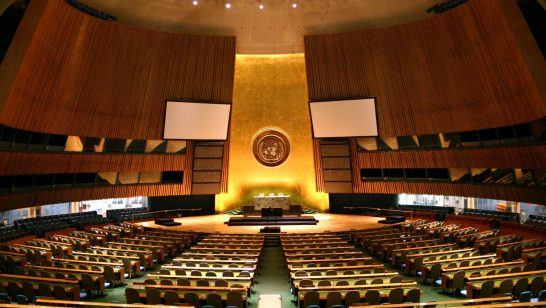
Between the leak of the near-final draft in early January 2018 and its formal launch last Friday, there has been wide media coverage of the new US Nuclear Posture Review (NPR). In a number of commentaries, the NPR is cast as a reflection of President Trump’s cavalier attitude to nuclear weapons and an indication that the US may now be more eager to use them. This has been the tone of the coverage in Europe, with a few interesting exceptions, despite the fact that the NPR was developed through an inter-agency process led by the Department of Defence, not the White House.
Dismissing the Review as a Trump folly would be a mistake. The NPR, whether one likes it or not, is now a policy guideline providing the basis for a variety of US initiatives, including nuclear modernization proposals and nuclear targeting policy. It represents a consensus view of the US civilian and military leadership. Its findings will influence US nuclear decision-making and signaling during any crisis under a Trump administration, including with Russia. The adoption of the document will thus have important consequences for Europe, including for Europe’s relationship with Moscow; further development of NATO’s deterrence and defence posture; and for Europe’s engagement in non-proliferation and disarmament initiatives.
The Nuclear Posture Review is consistent with the new US National Security and National Defence Strategies in presenting the strategic landscape as a return to great power competition, where Russia and China challenge US security interests and the US-supported global order. The current United States administration believes it must respond by re-establishing the credibility of US nuclear deterrent capability and by addressing the alleged “gaps” or weaknesses in its current posture. According to the NPR, the US will develop more flexible nuclear options and better hedging potential to deal with current and possible future contingencies. It reasons that a more effective deterrence strategy against nuclear and non-nuclear strategic attacks or threats will contribute to the prevention of war. With regards to its extended deterrence guarantees in Europe, the US has reconfirmed its “unwavering” commitment to NATO, and its readiness to work with the Alliance to enhance the effectiveness of NATO’s nuclear posture.
For a number of European states, especially those who see themselves as threatened by Russia, all of this is welcome. They share the NPR’s assumption about Russia’s increased willingness and capacity to threaten or conduct a limited nuclear strike. They are worried about the US’s and NATO’s ability to respond to this form of nuclear escalation. They see it as high time for the US to check Russian nuclear brinkmanship and be capable of introducing non-strategic nuclear weapons (not only existing nuclear-armed aircraft, but also new low-yield SLBM warheads and sea-launched nuclear cruise missiles) into a crisis. They believe that this should dissuade Russia from threatening or using nuclear weapons against NATO in the first place.
However, the new approach can also be problematic for Europeans for a number of reasons.
Firstly, the NPR’s claims that Russia finds the current US/NATO nuclear posture not credible, and that there is a “strategic imperative” to correct the (alleged) Russian perception that it can use its advantage in non-strategic nuclear weapons to prevail in a nuclear crisis, deserves much closer scrutiny. The NPR is not completely wrong especially about the latter, but it exaggerates the deterrence problem we face with Russia. Russian official doctrine continues to set a high threshold for nuclear weapon use. While several options, including a “warning shot” strike (but also actual battlefield use during a conflict) are developed and exercised, there is little to suggest that the Russian leadership would pursue a high-risk strategy of limited nuclear use just because there was a non-strategic weapons capability gap on the US/NATO side. Such a decision would have more do to with Russia’s assessment of the political environment, including its calculations regarding the resolve of Western leaders and the cohesion of NATO.
From a European NATO perspective, the NPR’s findings could become a problem if, guided by the new approach and its particular reading of the Russian “theory of victory”, the US decides to act assertively in the early stages of any crisis with its nuclear deployments and deterrence signaling. If some NATO members read Russian strategy and aims differently, and prefer other course, this could result in a major inter-Alliance row which Moscow would be happy to exploit. Beyond formal briefings at NATO, an in-depth discussion as to whether the NPR is describing the Russian challenge correctly is necessary to make sure all the Alliance’s members are indeed on the same page.
Secondly, there are unlikely to be many cheerleaders in Europe for the new NPR’s assertion that broadening the range of nuclear options, as well as widening the set of contingencies in which nuclear weapons can be used, will contribute to maintaining peace. Europeans would be right to worry that the US, a country that preached the value of nuclear restraint under Obama, has reversed its course and now promotes a more diverse nuclear weapon arsenal, especially low-yield non-strategic systems, as a solution to a range of security challenges. This provides an easy excuse for other countries to build new types of nuclear weapons. It also makes it more difficult for Europe to argue that there is a qualitative difference between the Western approach and, for example, the Russian posture.
Thirdly, and perhaps most importantly for European states, the policy course set by the NPR will complicate their efforts to salvage the global nuclear nonproliferation and disarmament system. Although the Review pays lip service to the importance of the Non-Proliferation Treaty and the goal of total elimination of nuclear weapons, it clearly places the strengthening of US nuclear potential first. This is a gift to supporters of the nuclear ban treaty in Europe, who can present it as the only way to stop the “madness”. It also undercuts European supporters of the step-by-step approach to nuclear disarmament, who could previously count on the United States to at least make an effort to engage with their agenda, and who will now end up as a marginalized and helpless group in the NPT Review and CD fora.
A tempting solution for many Europeans would be simply to keep quiet and pretend they have nothing to do with the US nuclear posture. For some, it may be attractive to take the moral high ground and contrast “responsible” Europe with American “nuclear cowboys”. For its part, the US can implement the NPR without any buy-in from Europe. But the NPR’s consequences for Europe deserve to be discussed seriously and thoroughly. The transatlantic relationship will only be strengthened if the US is given the opportunity to make its case for the NPR, and if any concerned Europeans have a chance to clearly state which elements they find objectionable and why. Maybe all sides can learn something in the process.
The opinions articulated above represent the views of the author(s), and do not necessarily reflect the position of the European Leadership Network or any of its members. The ELN’s aim is to encourage debates that will help develop Europe’s capacity to address the pressing foreign, defence, and security challenges of our time.






